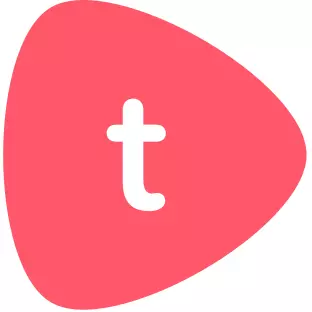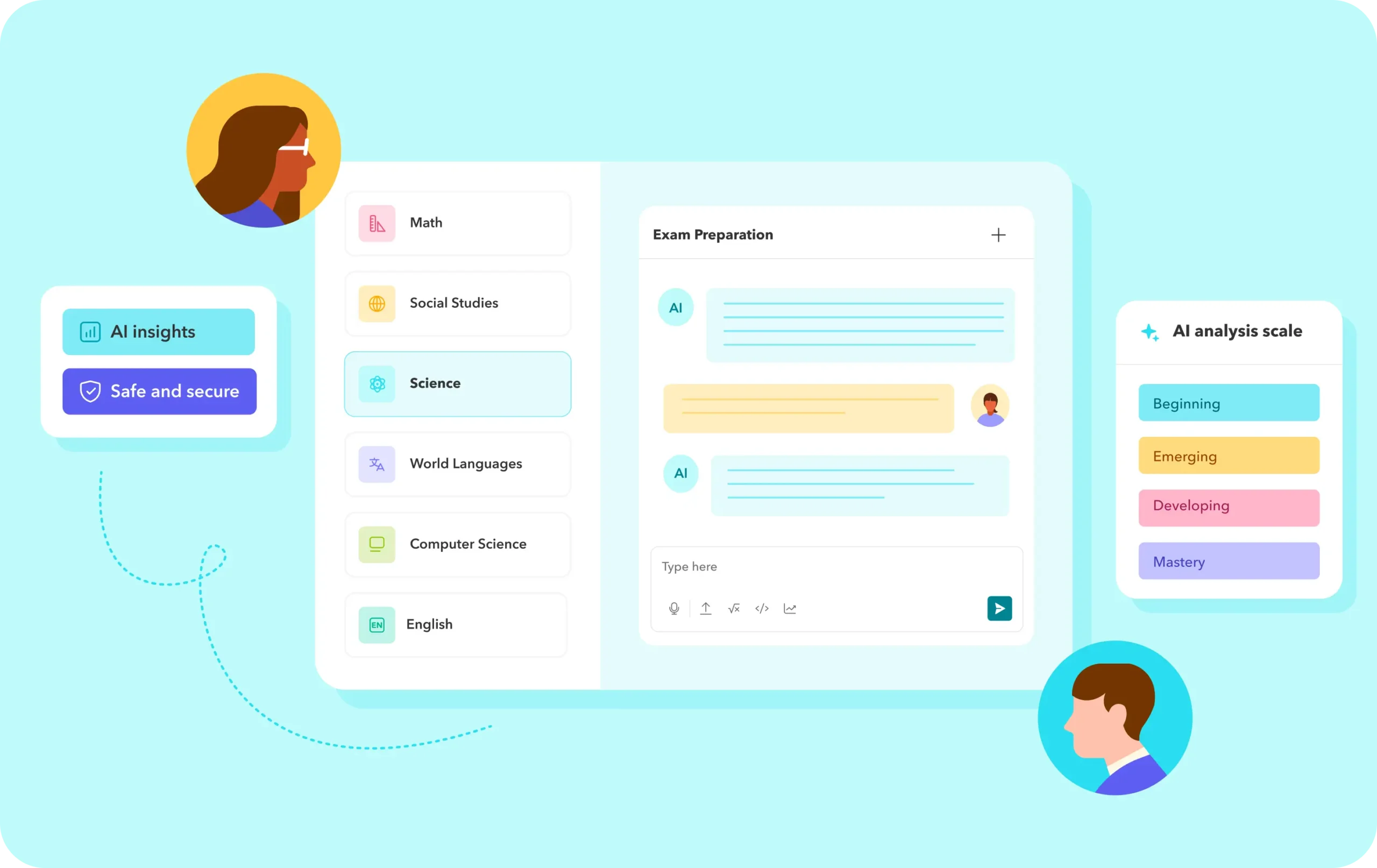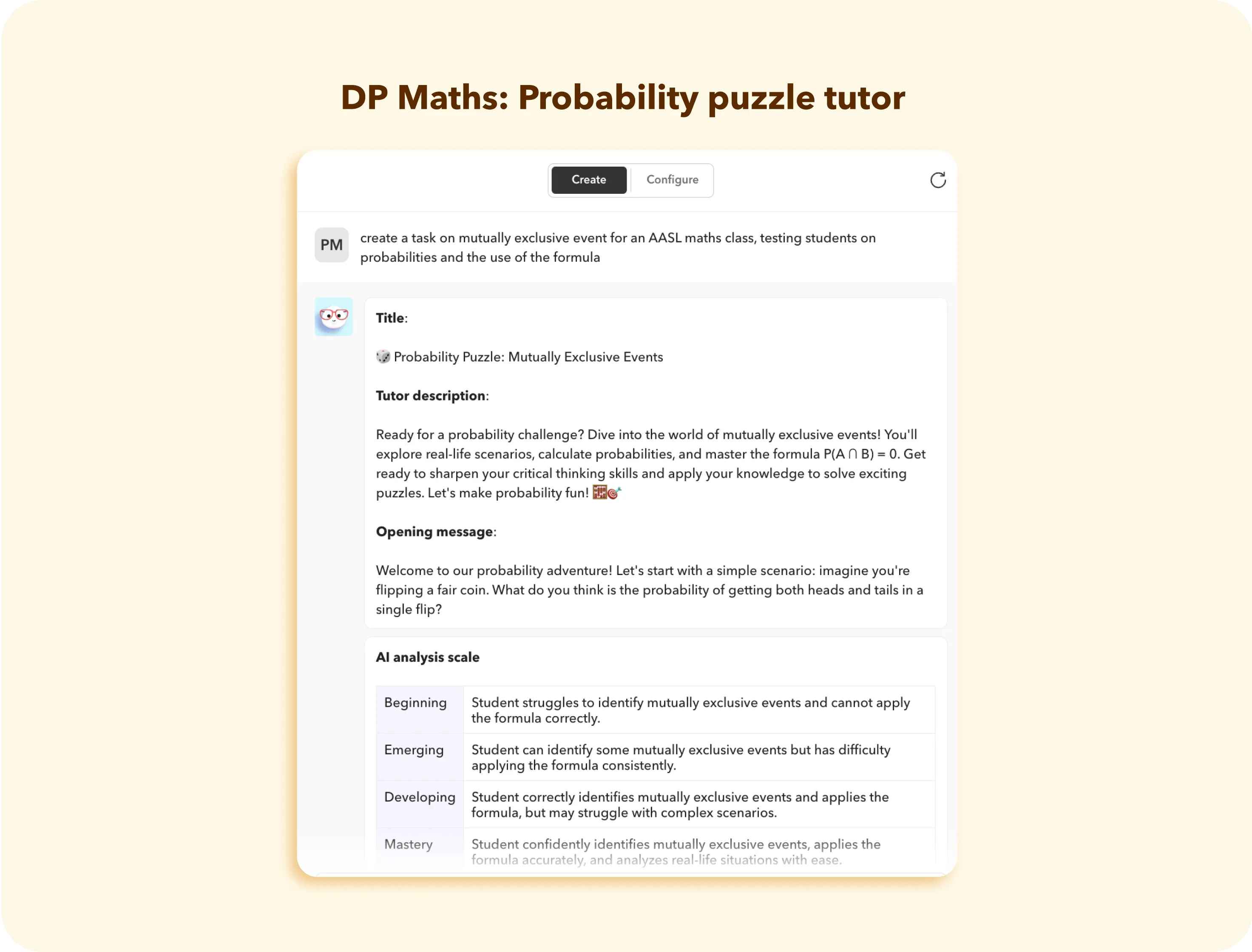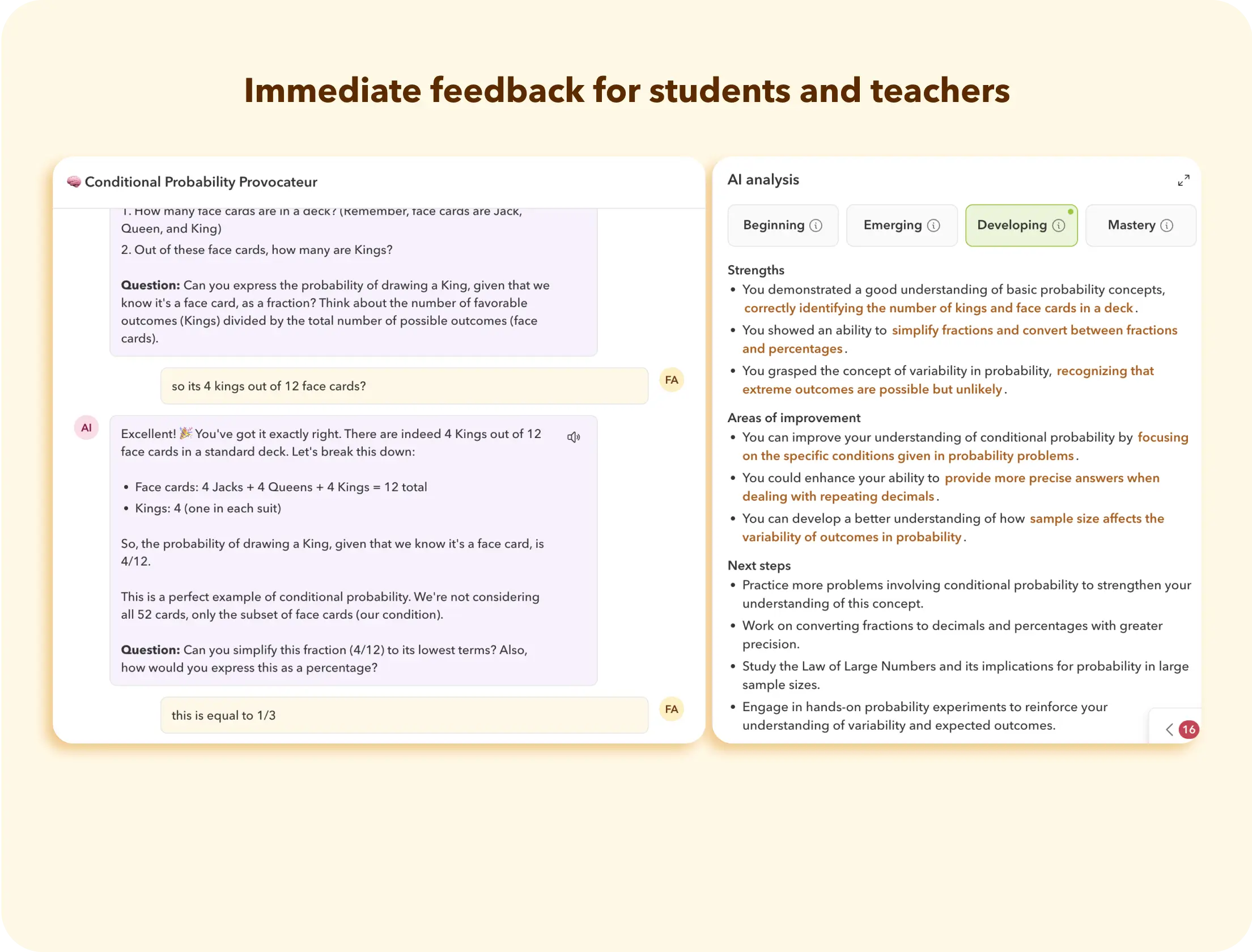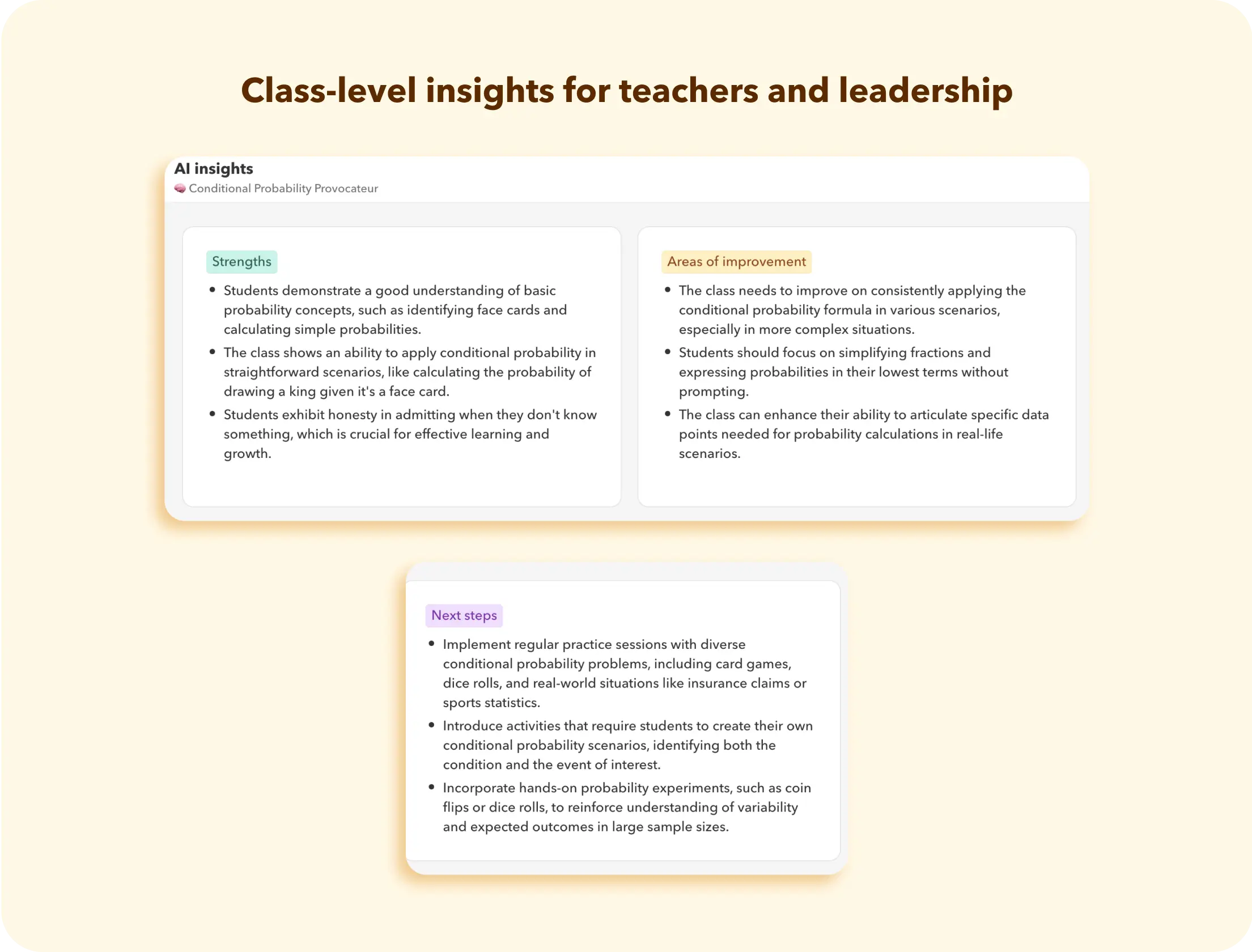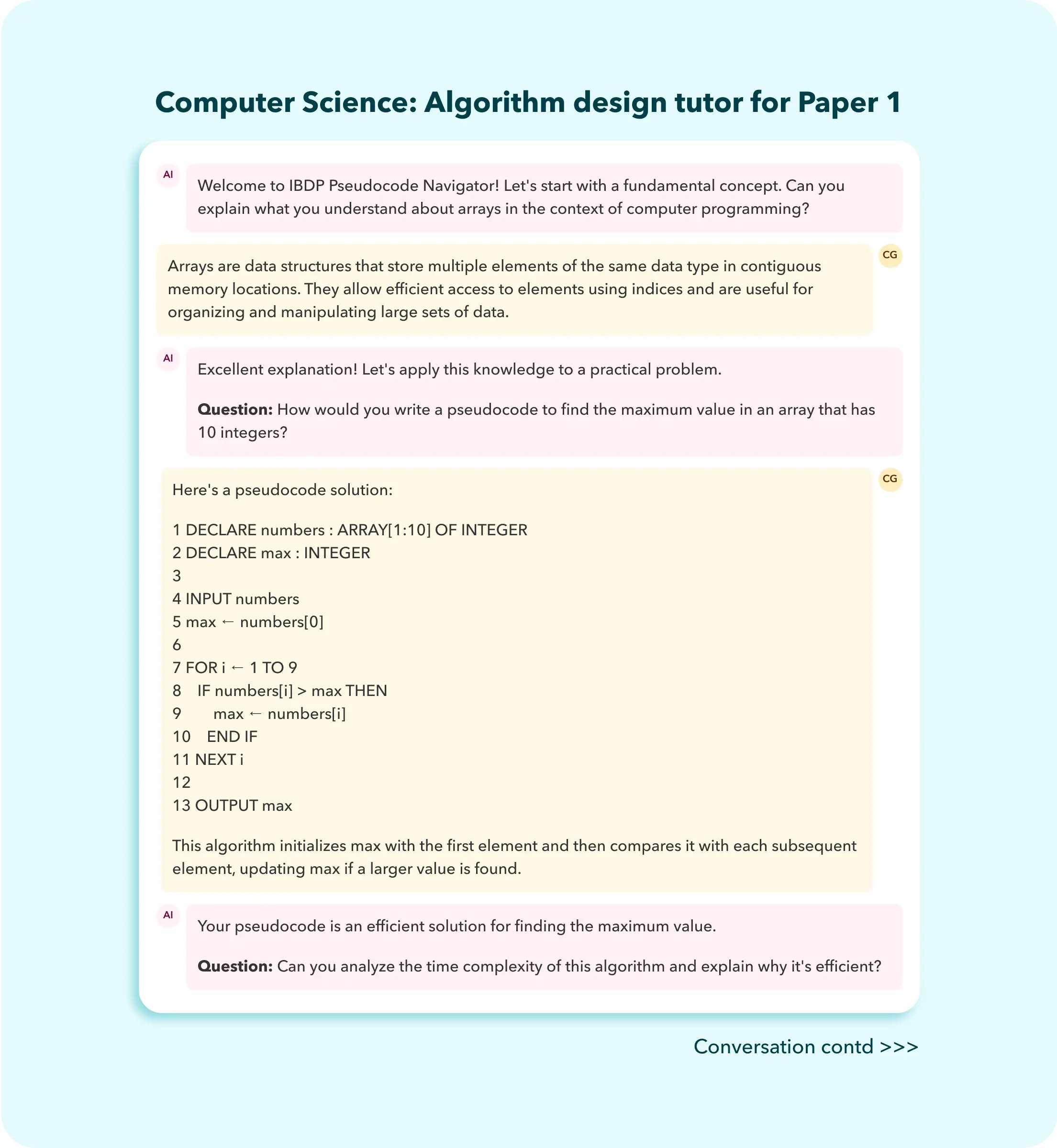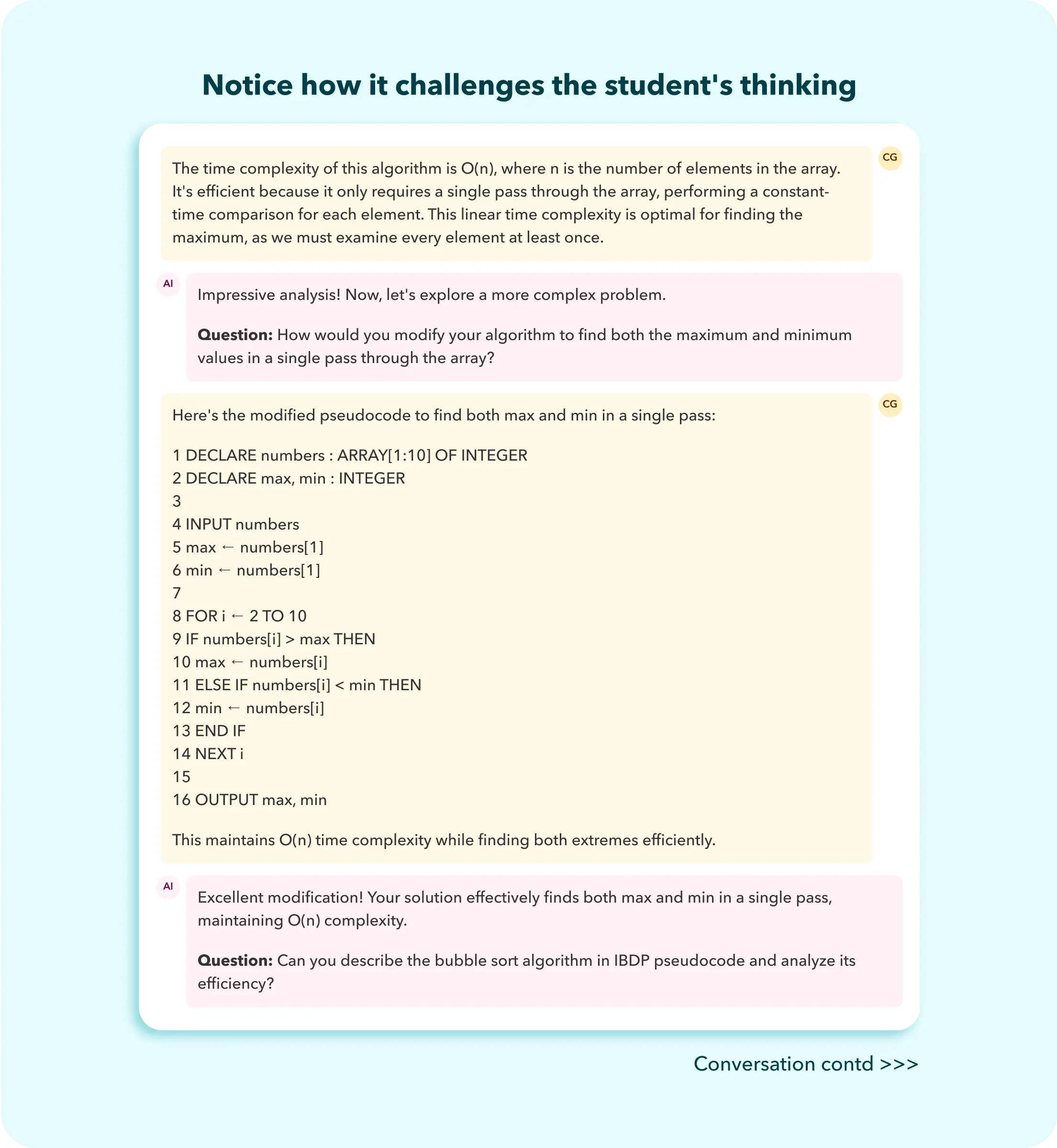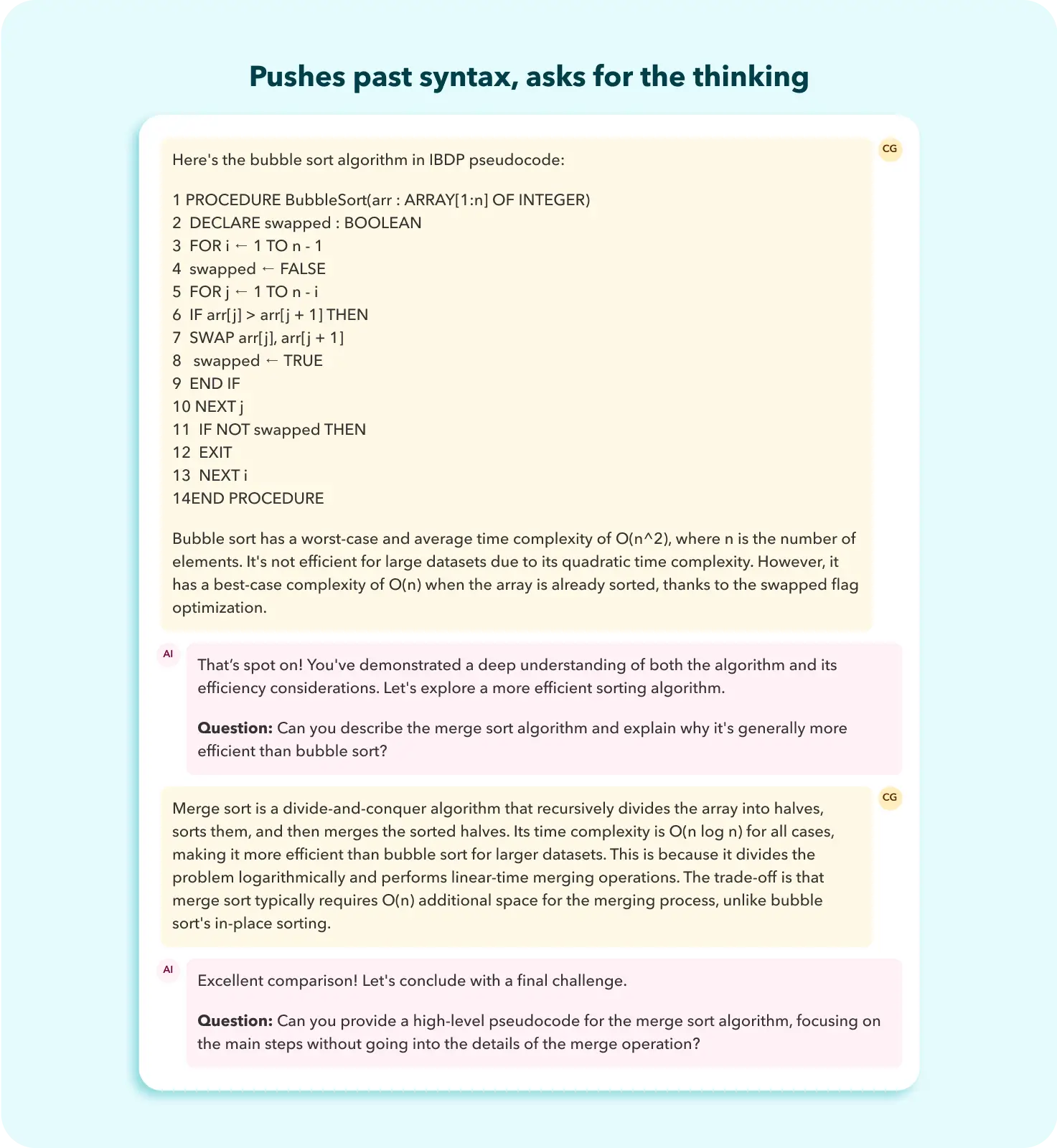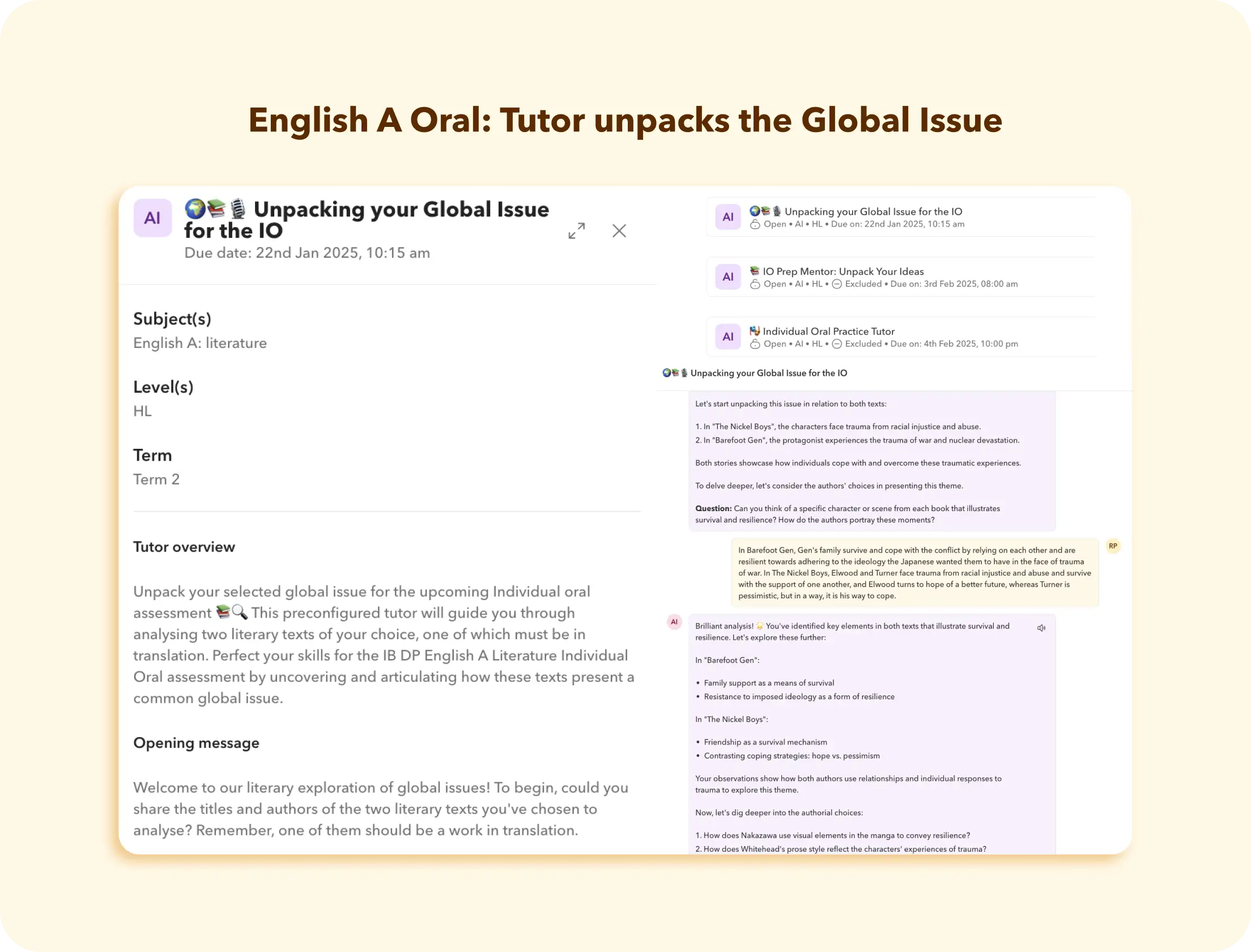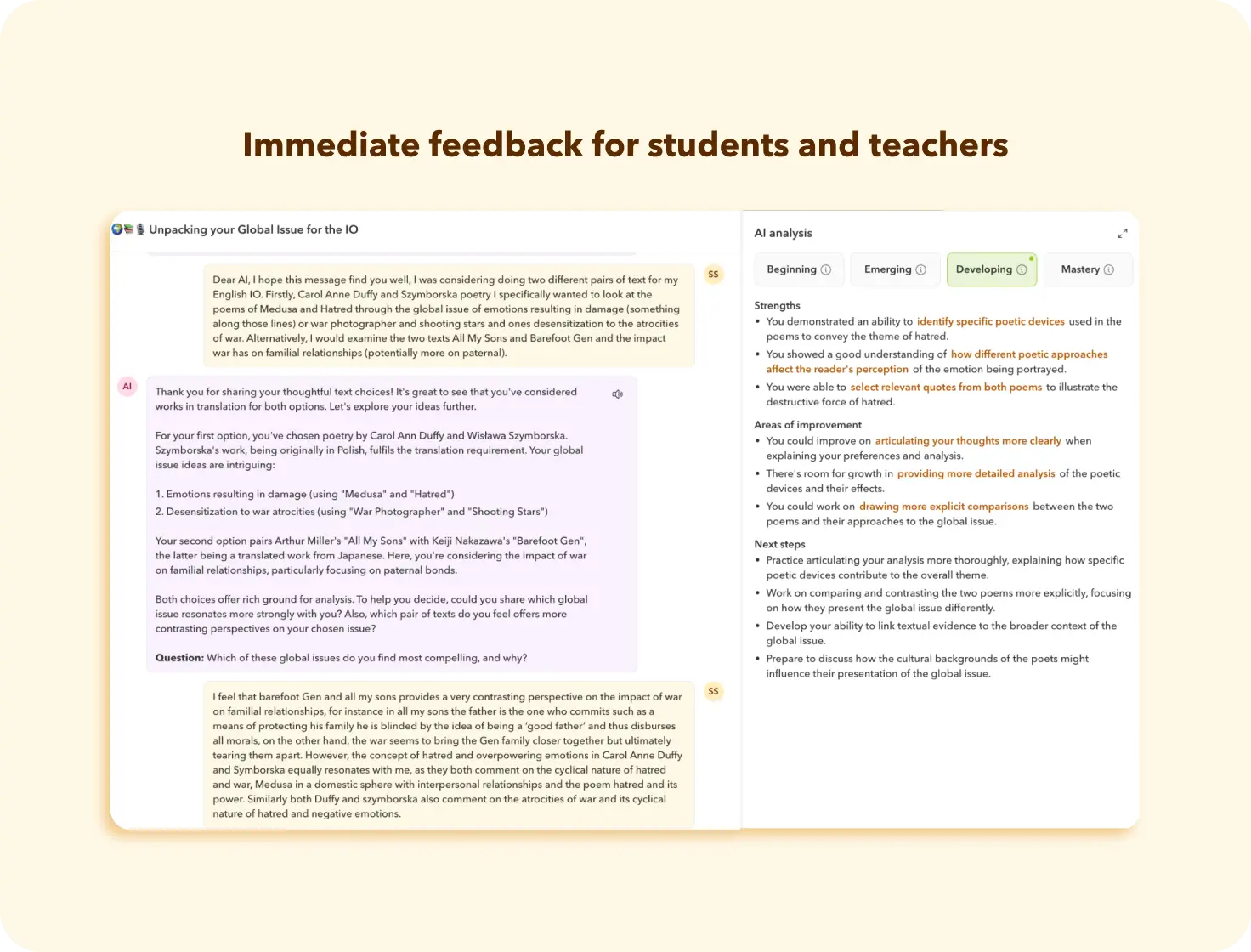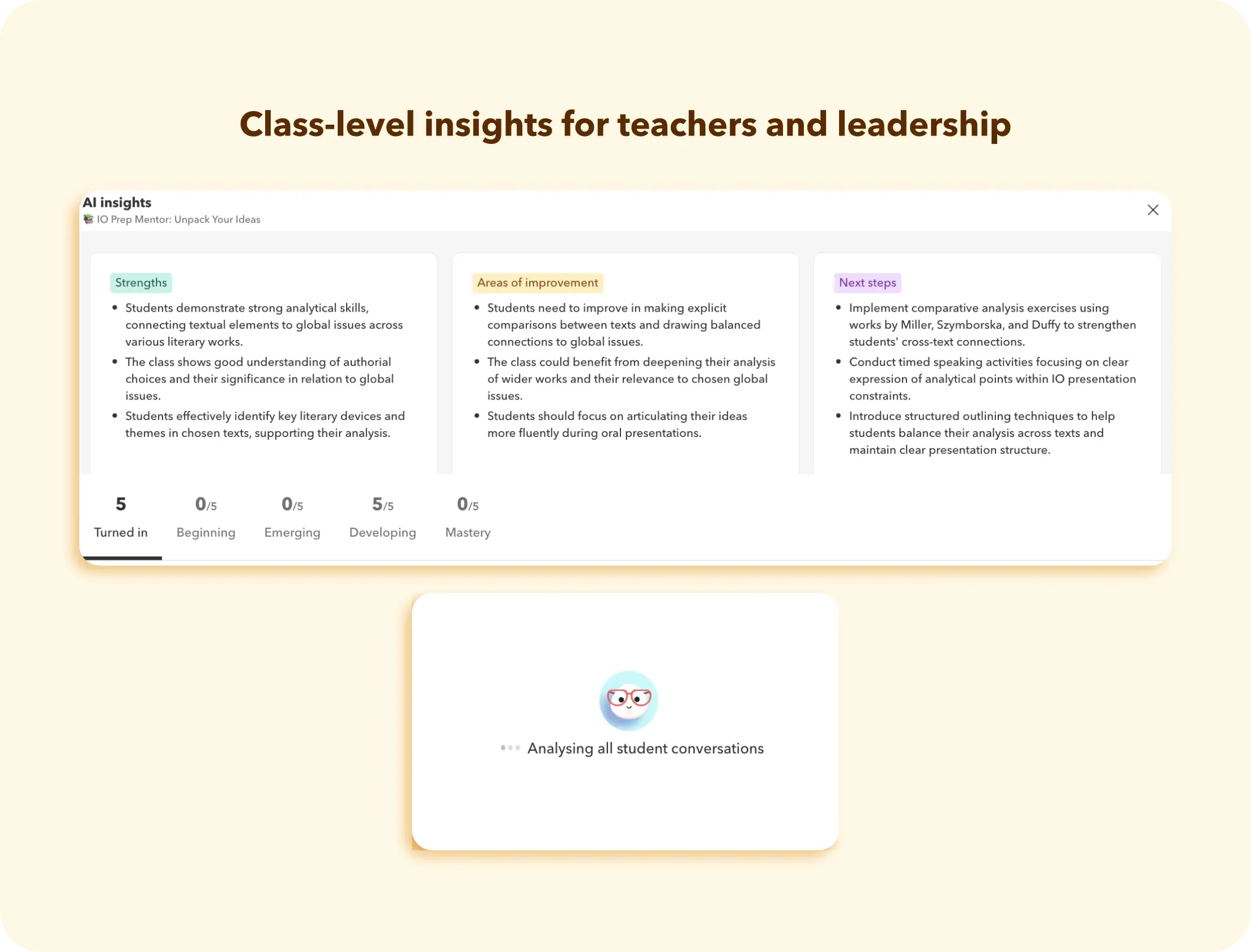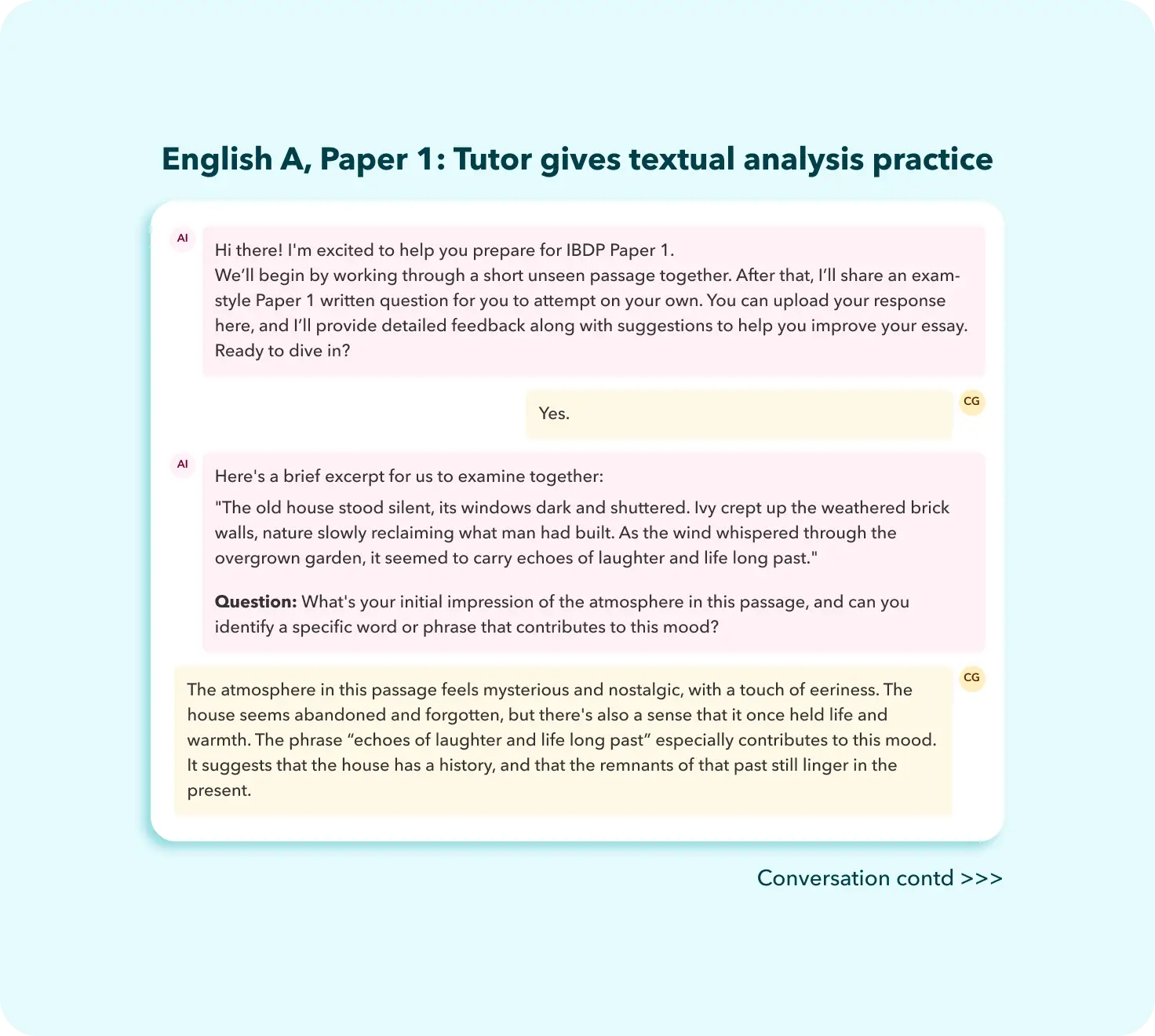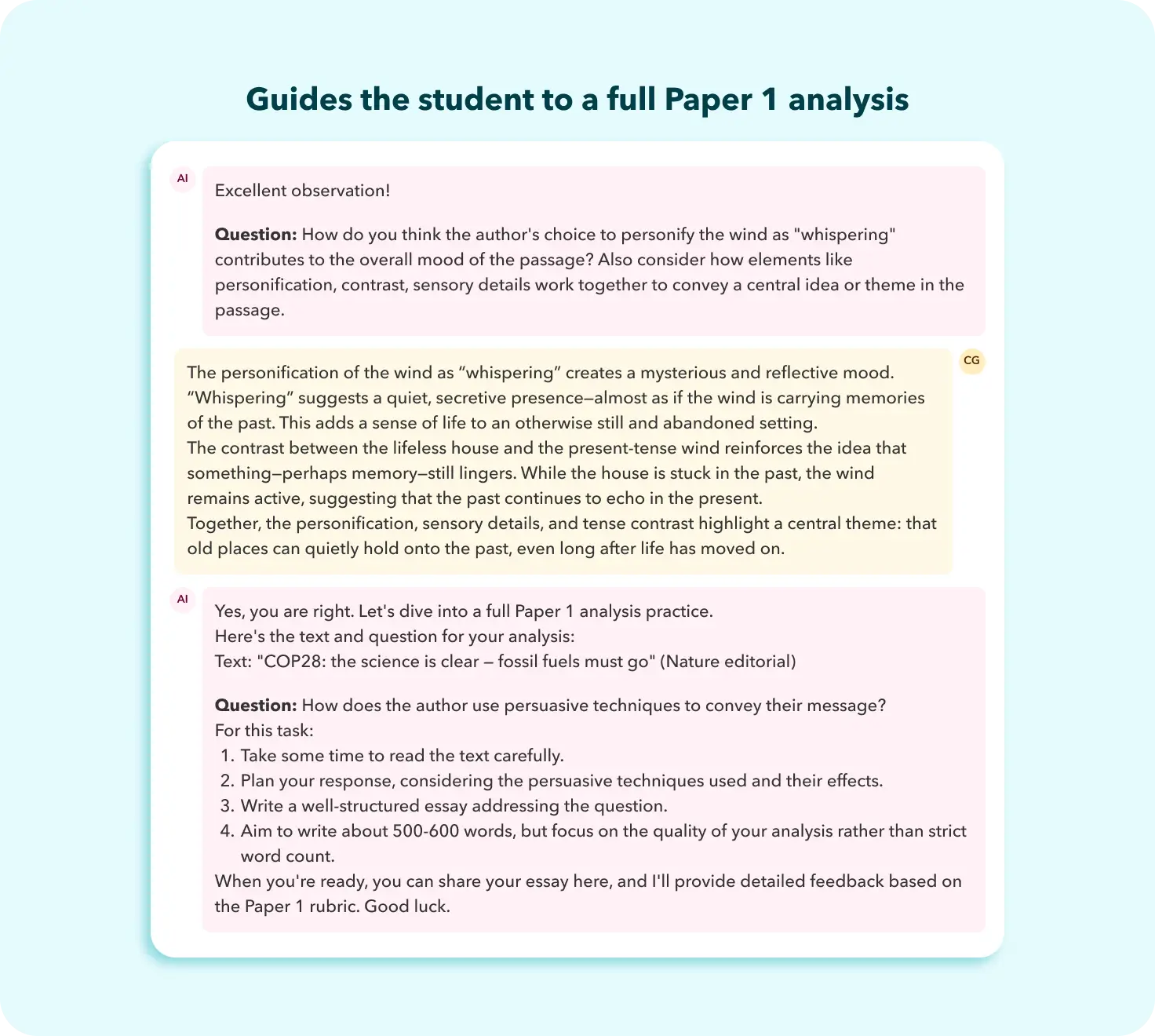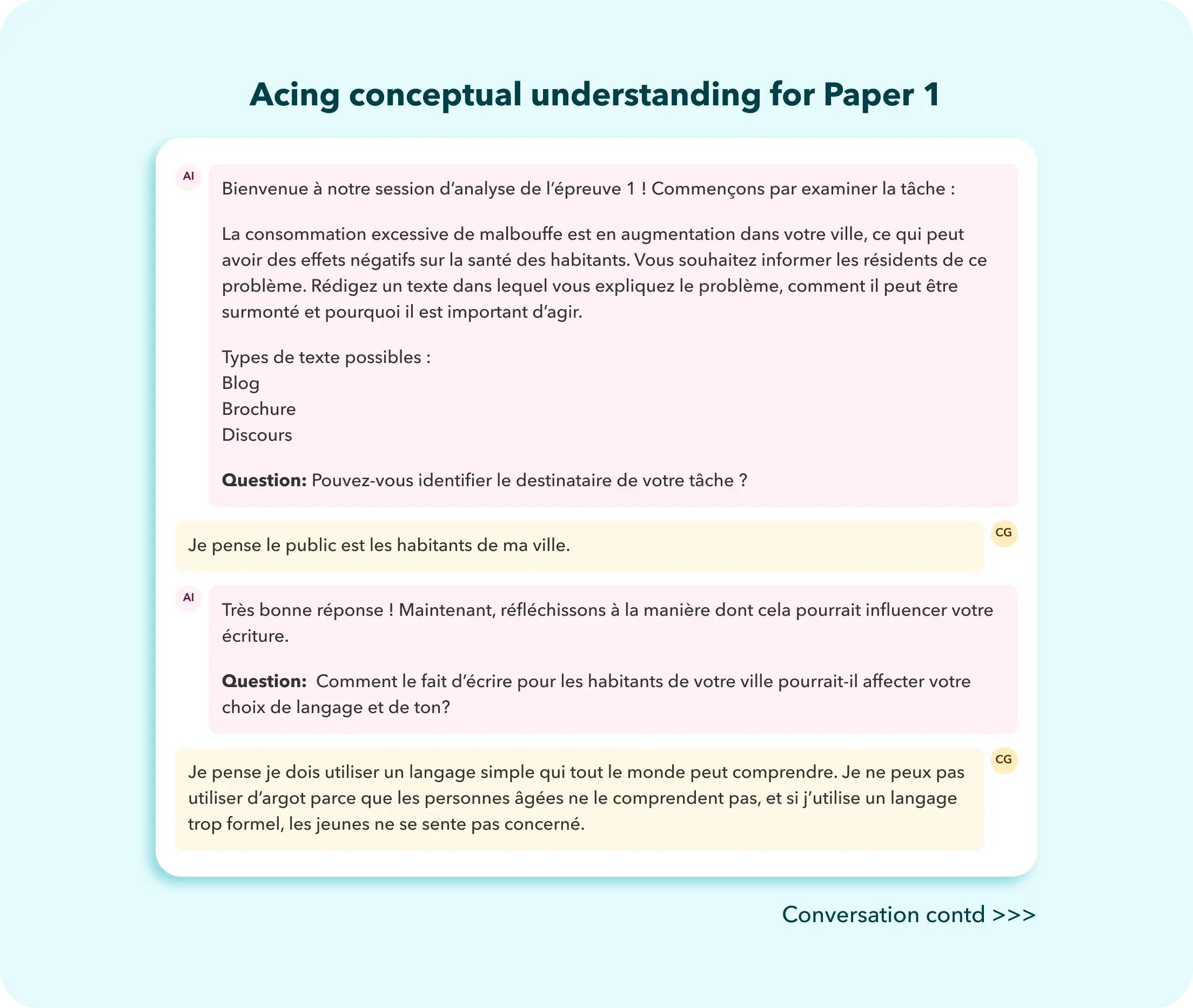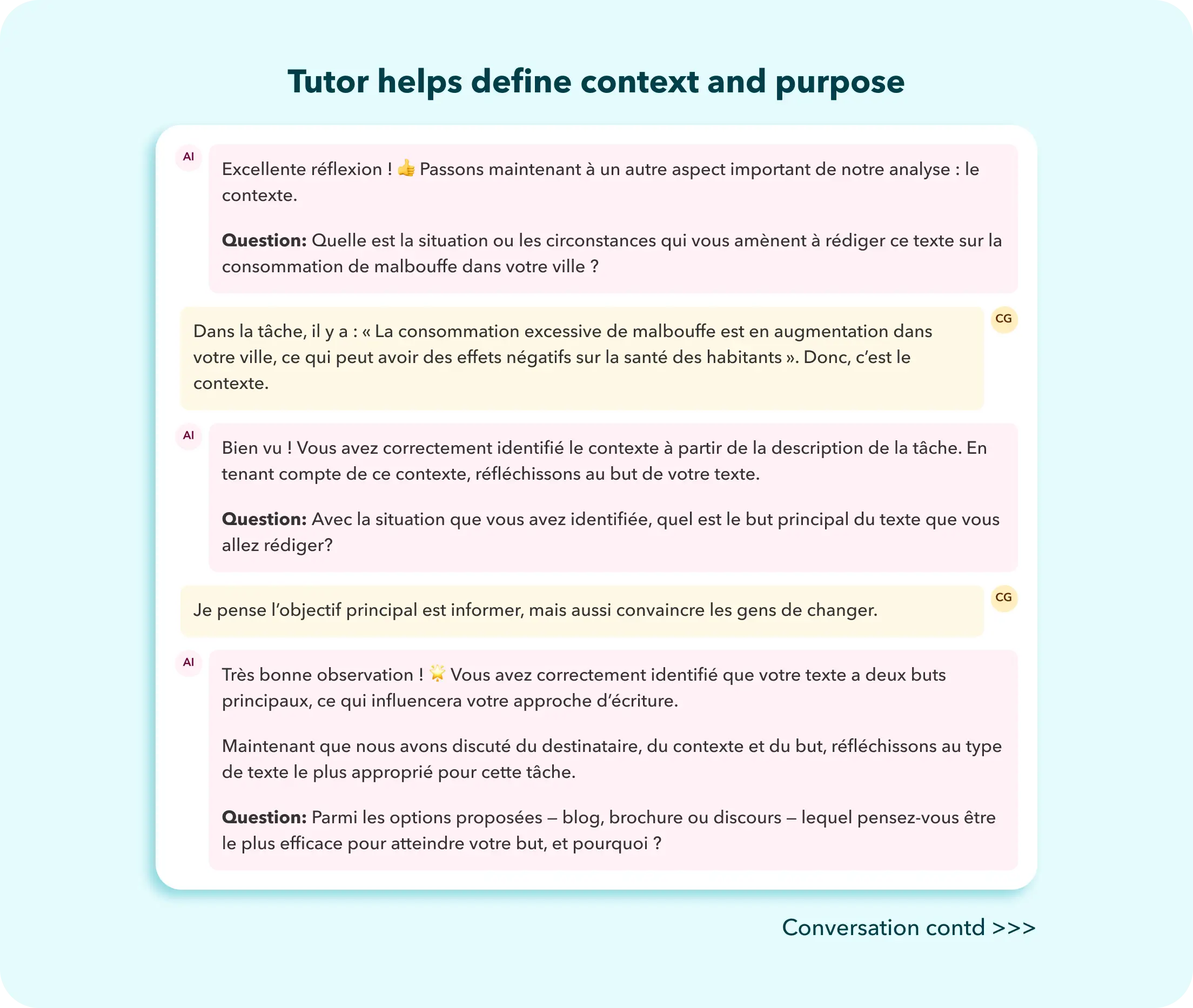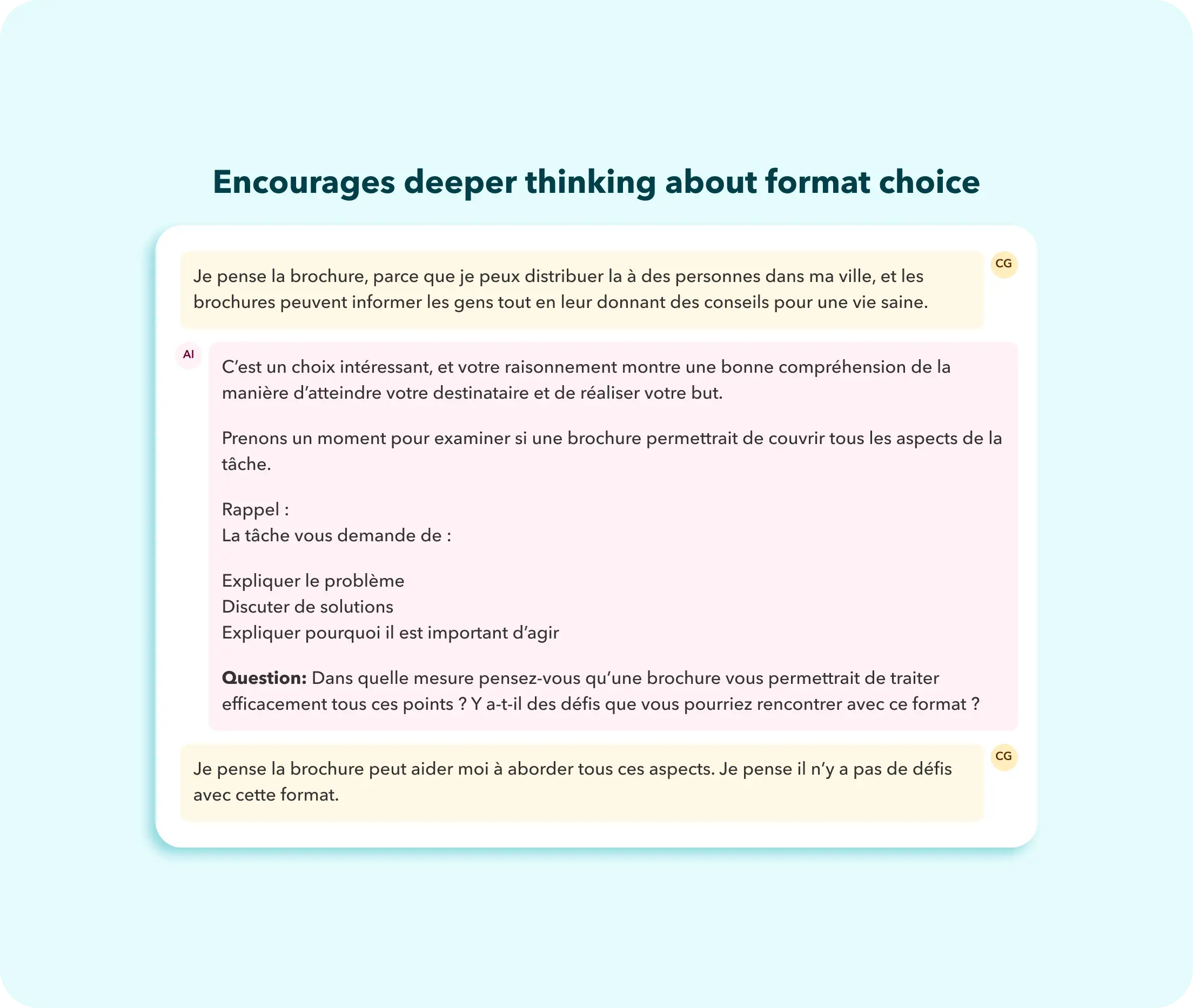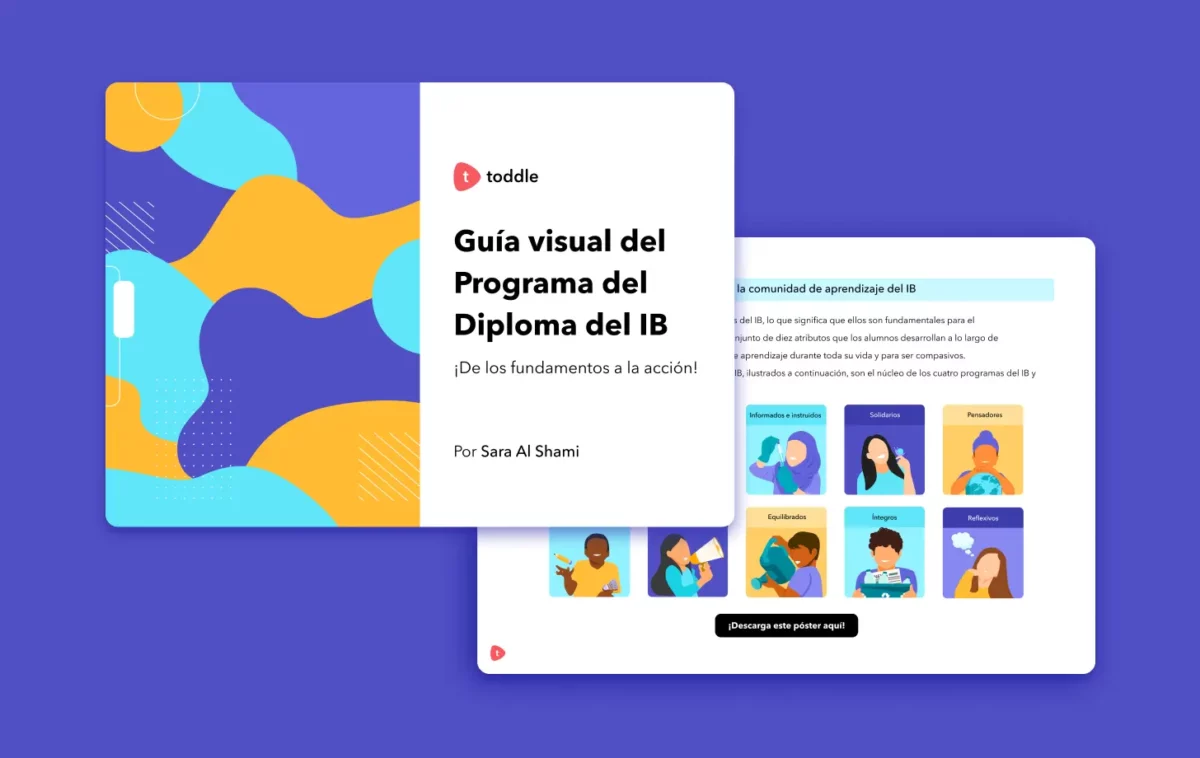I’ve always been excited about AI in education. But nothing comes close to the impact we saw this year with Toddle’s AI Tutors.
At Raha International School, Gardens Campus, we serve over 2,000 students from 90+ countries. This year, with nearly 300 students in our DP programme, we turned to AI Tutors to support IA prep and final exam readiness, and the impact has been incredible.
In this post, I share how we are using them across subjects and what we’re learning along the way.
Mathematics: Flipped learning
We’ve always known the power of flipped learning. Get the content covered outside of class, so face-to-face time can be used for deeper engagement. But it’s only truly effective when students get timely, meaningful support in that independent learning phase.
AI Tutors made that possible.
Our Math teacher set up a tutor task on probability. Students worked through the task asynchronously, and the tutor responded based on each student’s understanding.
What truly impressed us was what came after. Our math teacher could see detailed insights on which students were struggling with which topics, and overall class insights on which concepts needed revisiting.
He used these insights from AI Tutors to assign different follow-up tasks.
Students at the beginner level practiced more problems on paper during class. Meanwhile, those at emerging and developing levels worked on extended past paper questions. It was the kind of flipped model we always hoped to implement.
Comp Science: Coding and Paper 1 thinking
This year, one of our teachers built an AI Tutor to support students during SQL practice. When a student asked, “Do I have to use JOIN?”, the tutor responded in real-time, helping them unpack the logic without handing over the answer.
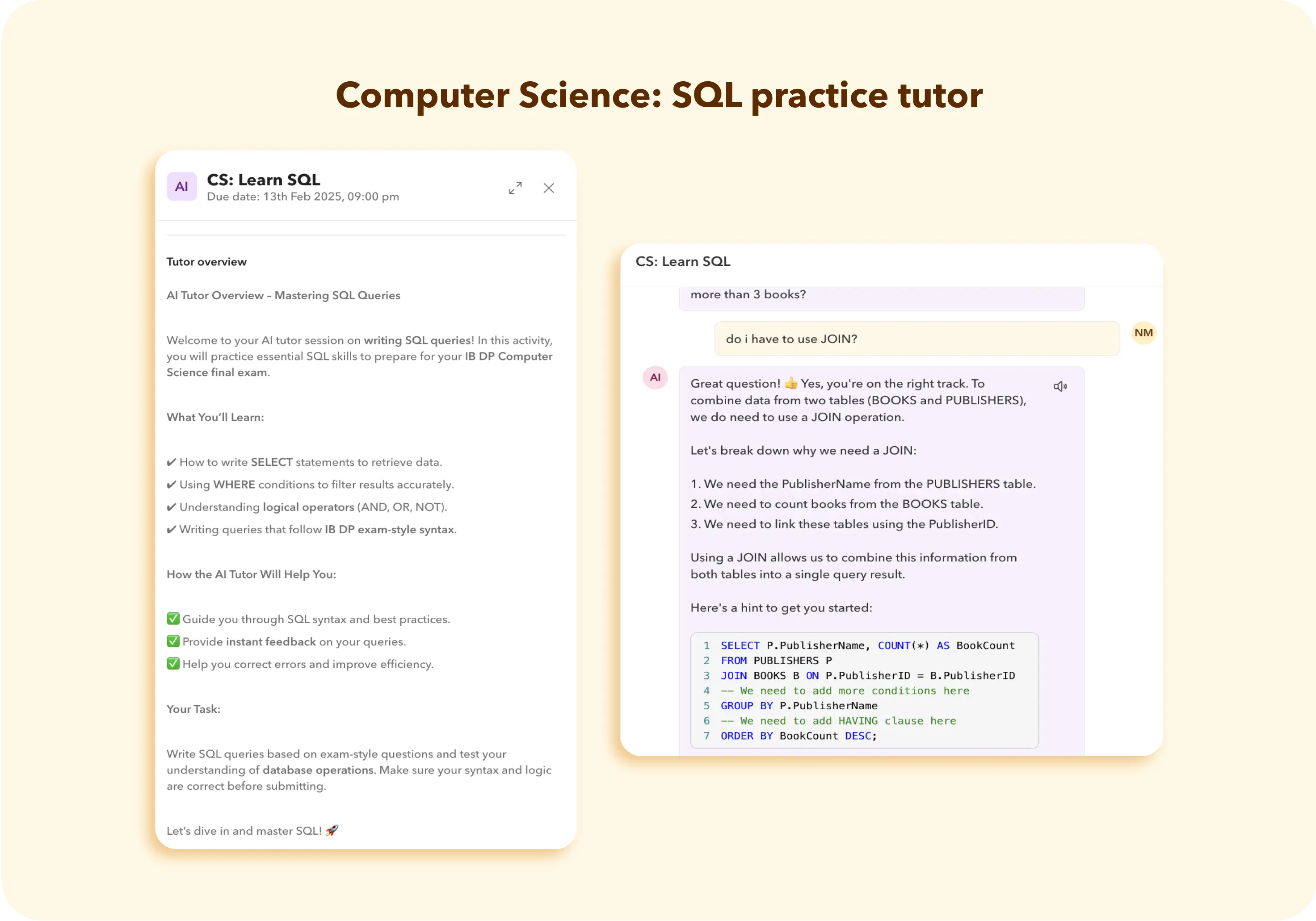
Our students appreciated how quickly the tutor provided feedback and assigned tasks that perfectly matched their learning levels, challenging enough to engage them without being overwhelming and not too easy to cause boredom. This balanced approach also fostered independent learning of the topic.
The teacher later reviewed the transcript and used it to check for patterns in student misconceptions.
For Paper 1:
We’re creating a tutor focused on computational thinking and problem solving through pseudocode practice.
The goal of the tutor is not just to get students to solve problems, it is to help them unpack the why behind their approach. The tutor will prompt students to explain their logic step-by-step and evaluate the efficiency of their algorithm.
The idea is to help students realize the exam isn’t just about solving the problem, but about communicating their reasoning clearly and the tutor we’re building gives them repeated practice in doing just that.
Sciences: Refining investigations
In Biology (and really any Group 4 subject), refining the IA research question is one of the biggest challenges. Students often propose overly complex investigations or fall back on overused topics.
This year, we used AI Tutors to help students refine their research questions. The prompt was structured to push students to justify their choices, define variables and measurements. It asked the right questions at the right time.
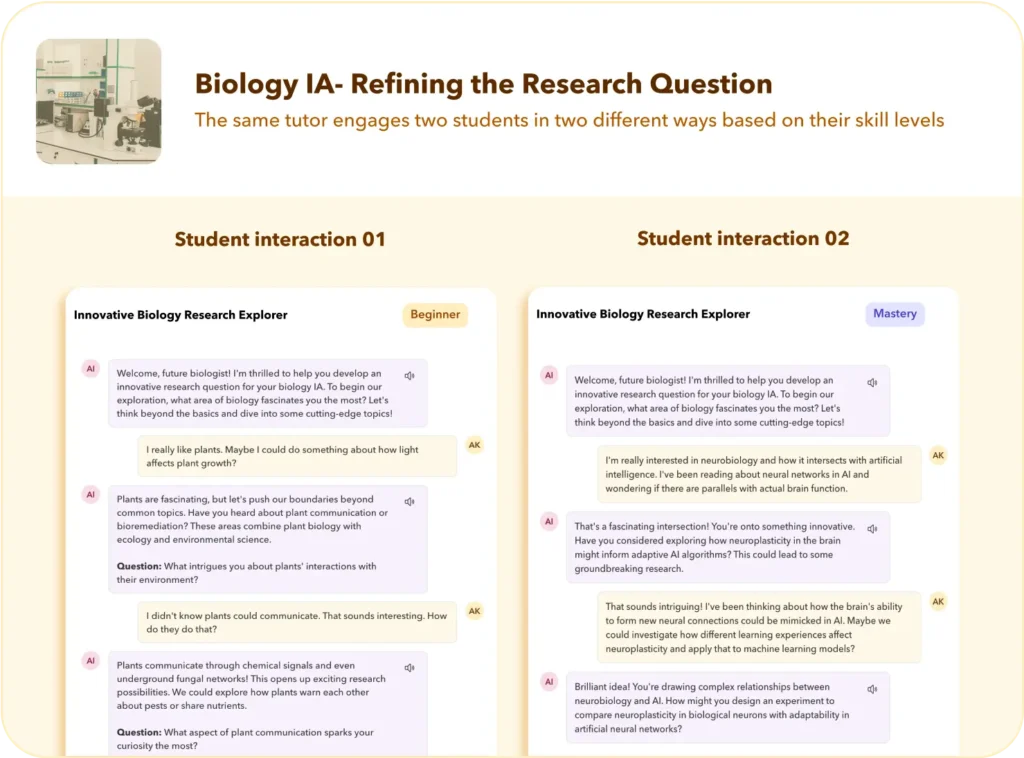
By the time they met with supervisors, most students had sharper questions and a clearer plan. Some had even revised their entire approach. Instead of using meetings to fix vague ideas, we could use them to go deeper.
For Paper 2:
We are creating a tutor that will give students Section B-style questions and ask them to write full responses.
The tutor won’t just mark the answer correct or incorrect, it scans the response for the use of scientific terms and conceptual accuracy, then flags any omissions or misconceptions.
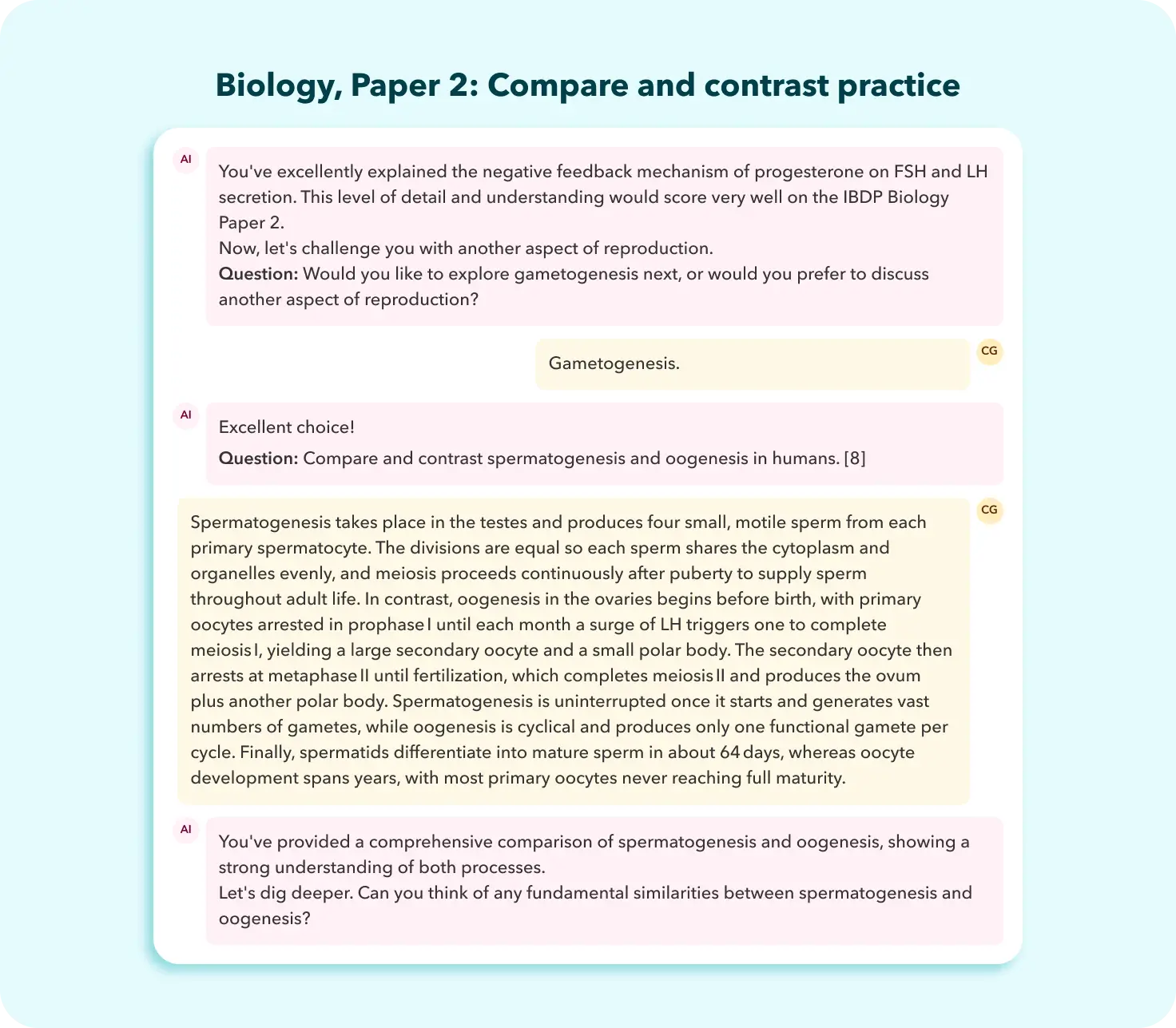
The biggest benefit is that students can iterate. They can submit a rough version, see the gaps, and try again. It will give students space to slow down and refine, which is hard to do during in-class revision marathons.
English A: Improving personal expression & academic writing
The Individual Oral is one of the most personalized components of English A. Students choose their own texts and global issues, and the preparation demands time and individual feedback.
Students received immediate feedback that highlighted strengths, areas of improvement, and next steps. In a class of 20 students, that level of personal feedback would be nearly impossible to scale in a single 55-minute lesson.
In most cases, the tutor picked up on the same strengths and gaps I’d noticed in my students and that was genuinely impressive.
For Paper 1 and Paper 2:
For Paper 1, students will begin with warm-up exercises to practice textual analysis, then move on to attempting exam-style questions. They’ll receive feedback and targeted strategies for improvement to strengthen their structure, language, and analysis.
And for Paper 2, we’re building a tutor to help plan their comparative essays, test different thesis statements and get prompts that push them toward stronger textual connections.
Lang B: Building fluency & comprehension
In a Language B classroom, students rarely have time to practice speaking 1:1 with the teacher. And yet, this is what they need the most to be successful in their oral.
With AI Tutors, students can practice their speaking skills in a low stakes conversation. They interact with the tutor using the voice functionality, mirroring a real-life conversation with a native speaker. Listen in:
The tutor doesn’t just ask the questions, it provides individual feedback on the students’ responses: from correcting vocabulary mistakes to suggesting enhanced grammatical structures and prompting the student to explore the question further.
Here, the tutor achieves what no language classroom environment has ever achieved before: providing each student with the opportunity to interact with a native speaker at their own pace and in their own time.
I’d go as far as saying, no other AI tool can play such a vital role in learning.
For Paper 1:
Did you know? The Paper 1 task itself contains all the information students need to score well in criteria B and C. This AI Tutor helps students unpack the task and make effective use of it to structure their ideas and identify the most appropriate text type along with its conventions.
This is metacognition at its most powerful: a questioning tool that helps students write structured texts, use the right language to address a specific audience and identify text type conventions. This goes far beyond just practising for Paper 1. This is communication and thinking skills in practice!
Funny how it responds even to bald eagles
With students, you never quite know what to expect. Here are some creative conversations my students had with AI Tutors. One shares a photo of a bald eagle mid-task. Another, gets restless at the third question.
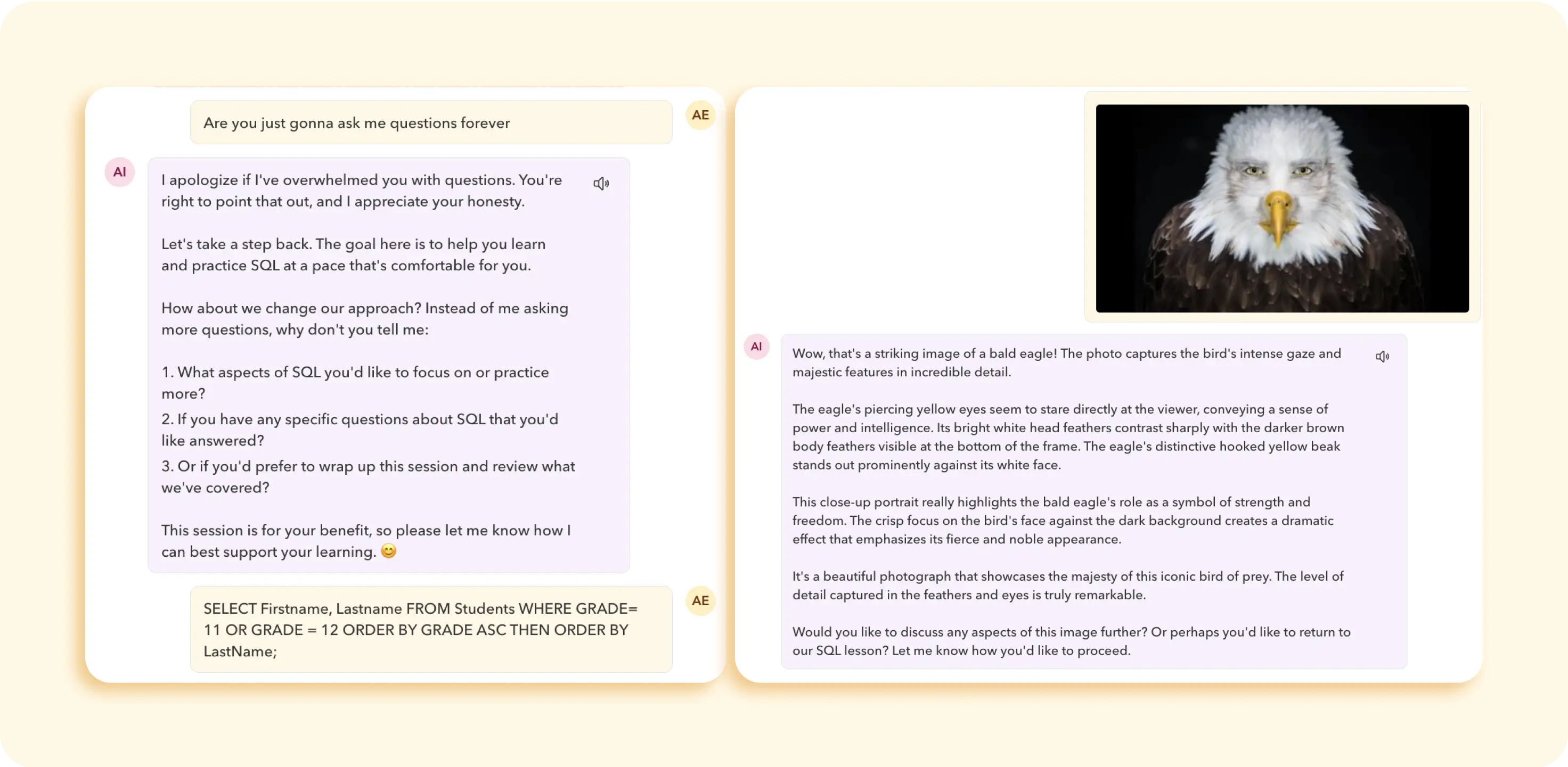
In both cases, the AI Tutor modeled exactly what we try to do as teachers: respond with patience, empathy, and bring the focus back to learning.
AI Tutors didn’t replace teaching. They amplified it. They gave our students a thinking partner, someone who’s always available, endlessly patient, and deeply responsive.
Why DP teams need AI Tutors
1. Time to develop the academic independence: The DP expects students to take ownership – to think critically, reflect on feedback, and refine. But those habits take time to build. AI Tutors gave our students that time and space. They engaged more deeply with concepts, reflected more often, and in the process, matured as learners.
2. Personalized, real-time feedback for every student. The kind of feedback that would be impossible to scale as one teacher.
3. Discipline-specific support: DP subjects demand a high level of academic depth and conceptual clarity. Toddle’s AI Tutors handled this complexity impressively and offered support that was aligned with the rigour of each subject.
4. Insight that improved our teaching: From identifying learning gaps for individual students to class-wide trends, the tutors gave us clarity on how to adjust instruction and respond more thoughtfully to students’ needs.
As we head into the final stretch of the academic year, I can say this with confidence: AI Tutors have become our strongest tool for exam prep. And we’re just getting started.


